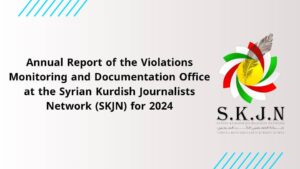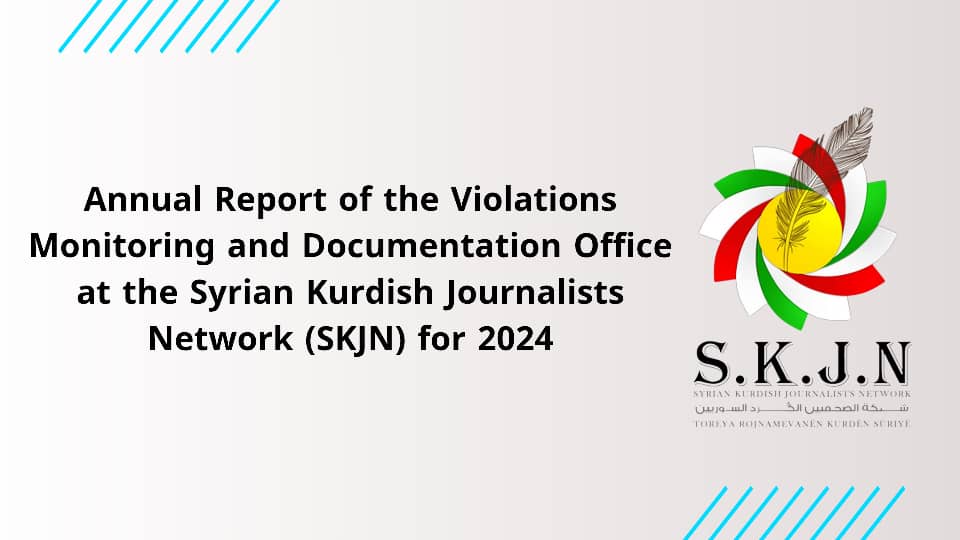“Transitional Justice as a Tool for Building Peace and Preventing New Violatios”
For years, we at the Syrian Kurdish Journalists Network, like other Syrian and international organizations advocating for human rights, have monitored and documented violations against journalists. We have published annual reports to draw the world’s attention to the scale of violations committed in our regions, or Syria as a whole, in collaboration with our partners. This has been necessitated by the tragic record of human rights abuses and the journalists who were killed in the regime’s detention centers under brutal torture, becoming part of this tragedy for over 14 years. From the outset, our goal has not merely been to document; rather, we have believed that the day must come when no one escapes accountability, ensuring that those responsible for such violations are ultimately held accountable.
In all our annual reports, we have sought, as much as possible, to highlight the realities of journalistic work according to the distribution of control across areas held by the authorities in the different areas of control:
1- The Syrian regime-controlled areas (commonly known as Russia-backed Assad regime areas)
2- The Syrian Interim Government and the Salvation Government (commonly known as the Turkey-controlled Syrian opposition areas)
3- The Autonomous Administration of North and East Syria (commonly known as the US-backed Kurdish areas)
Our main focus, however, has been on Kurdish areas, which constitute the core of our work and the presence of our network’s members in northeastern Syria. But now, everything has changed following the rapid collapse of the regime and the assumption of power by the caretaker government, which now controls most provinces except for the areas we monitor. This new reality requires us to quickly consider how to address this situation and to continue relentlessly defending our colleagues whose cities remain under the control of Turkey and its allied factions. Many have lost their homes and properties due to seizure by these groups.
We have documented various cases, hoping for the day when perpetrators of these violations are brought to justice through comprehensive accountability for crimes across all Syrian territories in a fair and impartial manner, following the fall of the regime. This accountability must not turn into retaliation among Syrians but should instead be pursued through fair and transparent trials under continuous international oversight. This, perhaps, represents the most significant challenge facing Syrians in lending credibility to the issue of accountability.


